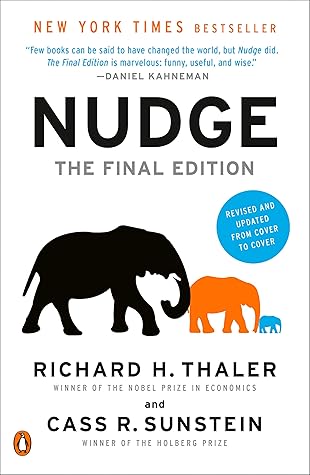More on this book
Community
Kindle Notes & Highlights
If the early Republican participants in one group ended up endorsing a position, other Republicans would be more likely to endorse it as well—and Democrats would be more likely to reject it. But if the early Republicans rejected it, other Republicans would reject it as well—and Democrats would endorse it. That’s exactly what happened! Across groups, Democrats and
Republicans often flipped positions, depending on what the early voters did. As the researchers put it, “Chance variation in a small number of early movers” can have major effects in tipping large populations—and in getting both Republicans and Democrats to embrace a cluster of views that actually have nothing to do with each other. These findings help explain how members of both parties flip over short periods of time, and also how issues suddenly, and surprisingly, become polarizing across political lines.
Unsurprisingly, about two-thirds of those enrolling chose a savings rate of exactly 6 percent. In contrast, when employees were enrolled automatically, the most common savings rate was the default: 3 percent. In other words, some of those who were automatically enrolled would have chosen a higher savings rate if they had been left to their own devices. Making matters worse, the default investment choice of the low-risk money market account meant that low contributions would earn tiny returns. Let’s underline what happened: more people were participating, which is good, but their savings rates
...more
Sweden currently has the highest carbon price in the world, about $130 per metric ton.13 Since the tax was introduced in 1991 at about $28, and gradually increased to its current level, the country has seen an 83 percent increase in real GDP—comparable to that of other OECD member countries—and a 27 percent decrease in emissions.14 Though the tax increased gasoline prices, the response to the tax promoted significantly larger behavioral changes than would be expected under a gasoline-price increase alone.15 There is a general lesson here. If a tax is understood to be responding to a serious
...more
This is known as the Energy Paradox 17: Consumers, who are Humans, decline to spend an extra $100 on a more energy-efficient washing machine that could save them much more than that in just a few years.


